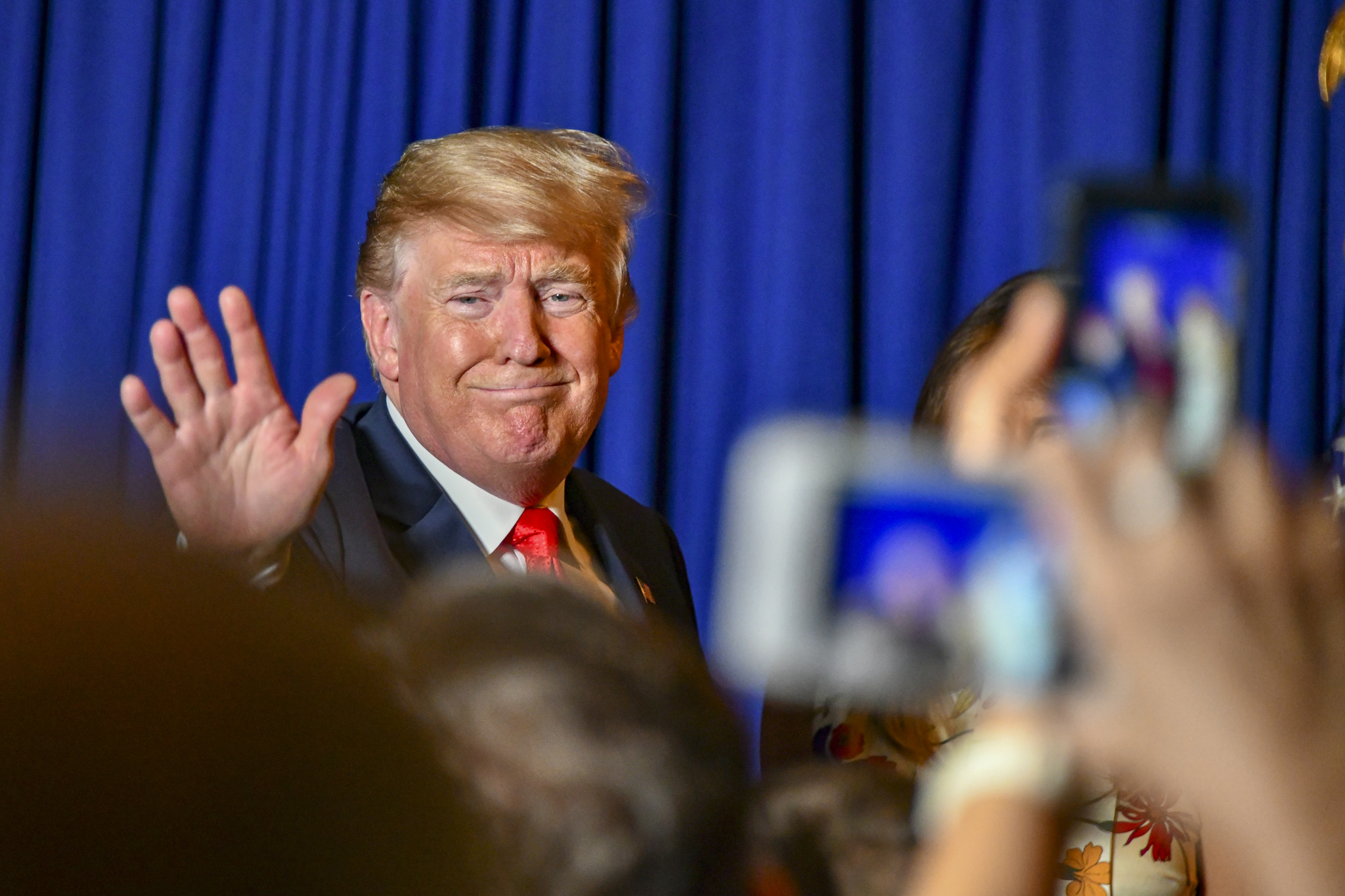The fact that President Donald Trump’s absolution of wrongdoing is causing disappointment and not celebration within the Democratic Party is shocking, but, unfortunately, not surprising.

Virginia's Public Square
Virginia's Public Square

The fact that President Donald Trump’s absolution of wrongdoing is causing disappointment and not celebration within the Democratic Party is shocking, but, unfortunately, not surprising.

In the 18-month run-up to the 2020 elections, with President Trump just less than categorically deemed a victim in the investigation, it will set up yet another round of his war with Democrats and most of the American media, which he has won, both dramatically and consequentially.

The Senate confirmation hearing for William Barr, President Donald Trump’s new pick for attorney general, began Tuesday morning, seemingly less contentious than the hearings that dominated autumn 2018 with Supreme Court Justice Brett Kavanaugh. Barr served as the 77th Attorney General under the late former President George H. W. Bush from 1991 to 1993.
The Reagan-era policy staffer was known as a strong defender of presidential power and aggressive actions on terrorism and drug-trafficking. Regardless, during his 1991 confirmation hearing he received a good reception from both Republicans and Democrats.
One of the biggest issues surrounding the confirmation of Barr is how he will handle White House Special Counsel Robert Mueller’s investigation into Russian collusion into the 2016 presidential election. Many on the Senate Judiciary Committee prompted Barr to reveal if he would act to protect the president if the eventual release of the report would incriminate the commander in chief.
With talk of the upcoming departure of Deputy Attorney General Rod Rosenstein, who has been at odds with President Trump in the recent past, Barr explained that he has nothing to do with the decision. Although Barr would be allowed to choose his deputy for the Department of Justice (DOJ), he reiterated that he has asked Rosenstein to stay on for “a period” if he is confirmed.
Barr also answered questions on whether he would allow Trump to direct him in the Russia investigation, after ousted Attorney General Jeff Sessions recused himself in the weeks after the president’s inauguration – an issue that began the tumultuous relationship between the two.
“I will not be bullied into doing anything I think is wrong,” Barr said.
Recently, however, Senator Kamala Harris (D-CA), a widely-speculated 2020 Democratic presidential candidate, believes Barr should recuse himself from overseeing Mueller’s investigation.
On Tuesday, senators Richard Blumenthal (D-MA) and Dianne Feinstein (D-CA) charged that Barr that he must act as a fully independent attorney general, regardless of the wishes of the president, who has said that he does not want a DOJ head that will recuse himself. Furthermore, Feinstein prodded Barr to commit to not interfering in the Russia probe.
“The special counsel’s investigation is set by his charter and by the regulations, and I will ensure those are maintained,” Barr said, adding that he will not terminate the investigation “without good cause.” He also said the special counsel “is not involved” in a witch hunt.
Although Senate Judiciary Chairman Lindsey Graham (R-SC) said the process to confirm and the subsequent responsibilities of Trump’s pick for attorney general “will be challenging,” he expressed confidence in Barr during the questioning insofar as Mueller’s investigation is concerned. Barr said Mueller will be allowed to continue the investigation, making the results public, consistent with federal regulations.
“I believe it is in the best interest of everyone…Bob will be allowed to finish his work,” he said, who also has a friendly relationship with the special counsel.
As the confirmation hearings continue, Barr will also be grilled on presidential powers, immigration enforcement, abortion and the validity of Roe v. Wade (1973), the handling of enemy combatants and the constitutionality of torture, protections for journalists, and his past actions in previous administrations.
If Barr becomes the 85th attorney general, he will be the first to repeat the position since its inception in 1789. He will replace acting-Attorney General Matt Whitaker who was thrust into the position following his tenure as chief of staff to former Attorney General Sessions after a two-year, mostly bad-tempered relationship with President Trump.

Deputy Attorney General Rod Rosenstein is reportedly expected to resign today, even going to so far as to verbally resign to White House Chief of Staff John Kelly in anticipation of being fired by President Trump, according to some reports.
The development follows last week’s New York Times (NYT) article detailing how Rosenstein has talked about working to invoke the 25th Amendment to have President Donald Trump removed from office, as well as and wearing a wire during meetings with the President to expose alleged chaos within the administration. Rosenstein has denied both allegations.
Justice Department officials said on Monday morning that the deputy attorney general was on his way to the White House and expecting to be fired. Over the weekend, Rosenstein is said to have called a White House official and said he was considering quitting, and a person close to the White House said he was resigning, according to the NYT.
As the top Justice Department official overseeing the investigation into Russia collusion on part of the 2016 Trump campaign, Rosenstein has been a fierce defender of Special Counsel Robert Mueller, repeatedly refusing to consider firing him despite accusations by President Trump and his allies that the investigation is part of a “deep state” Democratic conspiracy to undermine his term in office.
If President Trump accepts the resignation from Rosenstein, Solicitor General Noel Francisco would assume oversight of the Russia investigation. The acting deputy attorney general would be Matthew Whitaker, the chief of staff to Attorney General Jeff Sessions, until a permanent replacement is named.
Furthermore, Rosenstein’s presumed departure has prompted questions of whether President Trump has other people lined up on the chopping block. For example, Sessions has been repeatedly bashed by the President on Twitter as well as in the news. Last week, Trump was quoted as saying, “I have no attorney general.”